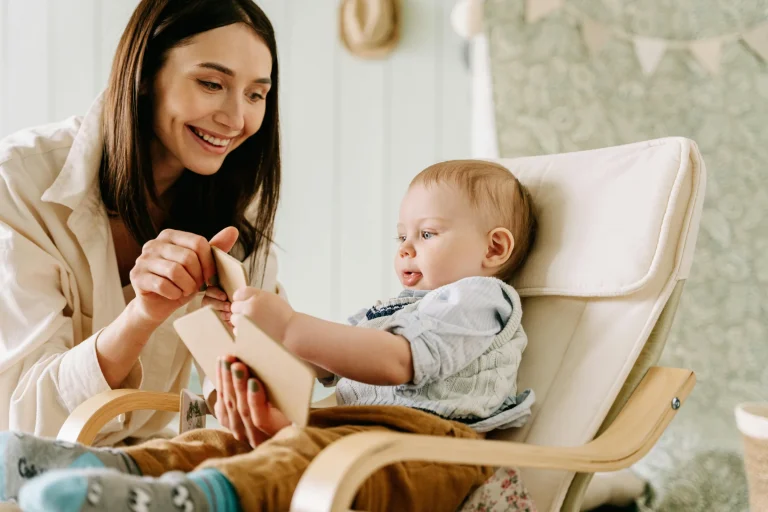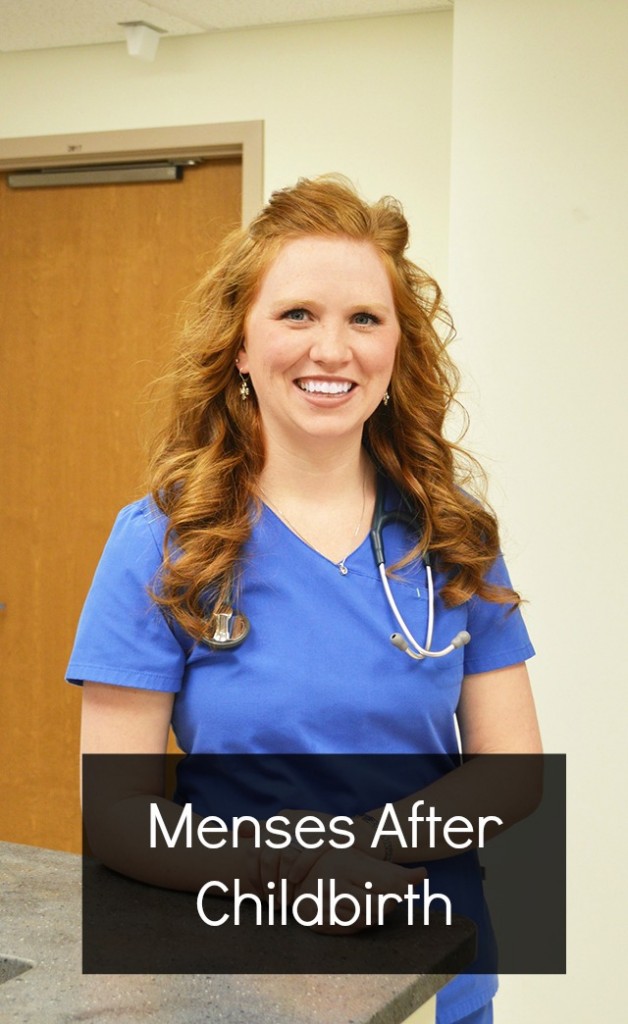Of course, the biggest reward of pregnancy will be your adorable new baby. But if you’re like many expectant moms, another huge perk is having your period go on an extended vacation.
When will it return and how will it be different? Read on for more info!
How soon can I expect my first period after pregnancy?
Your breastfeeding status is the biggest factor affecting when you’ll get your period again because prolactin, the hormone responsible for breast-milk production, suppresses ovulation. Women who don’t breastfeed typically find that their period returns four to eight weeks after childbirth. For women who breast and formula-feed, it may take weeks to months for it to resume. Women who breastfeed exclusively get even more time off: It’s normal not to menstruate for six months or longer. And many moms don’t have their first period until they stop breastfeeding.
Can I get pregnant before it returns?
Some women find out the hard way that not having their period doesn’t mean there’s no risk of pregnancy. Some women can already be pregnant at their six-week postpartum visit. Keep in mind that ovulation occurs before menstruation; once you ovulate, you’re fertile, so you can get pregnant even if you haven’t had a post-baby period. That goes for nursing moms too. A lot of moms rely on breastfeeding as a form of contraception, but it is not recommended. Always use another method of birth control. Talk to your healthcare provider about which form is best for you, as some aren’t recommended for nursing moms. Birth-control pills that contain estrogen, for example, may interfere with breast-milk production (the estrogen-free “mini pill” may be a better option).
Will my periods be the same as they were before?
Your period may change a little, a lot, or not at all. You may have longer or shorter ones, a heavier or lighter f low, and even your cycle length can be different. It’s also possible to have increased or decreased cramping. This is because your uterus grows during pregnancy, then it shrinks after delivery (although it may remain slightly larger.) The endometrial lining—what is shed during a period—has to remodel itself as it goes through these changes. This process occurs with each pregnancy, too, so you may notice changes in your period after each baby. It may also be heavier after childbirth if you’d been on hormonal birth control before pregnancy, such as the pill or some IUDs, since hormonal contraceptives thin the endometrial lining. If you have a vaginal delivery, a tampon might sit differently or feel different. Generally, most women don’t need to go up a size in tampons. With time, using a tampon should feel as normal as it did before.
Are my periods going to be irregular at first?
It can take time for your hormones to get back to normal, especially if you’re breastfeeding. One menstrual cycle might be 24 days, the next one might be 28 days, and then another one could be 35 days. Your cycle should stabilize within a few months or after you’ve stopped breastfeeding.
How do I know if something is wrong?
You can expect some heavier bleeding and increased cramping with your initial post-baby period. But if you need to change your tampon or pad every hour or more frequently, alert your healthcare provider. It could signal a bigger problem. Also contact your doctor to rule out anemia or a thyroid dysfunction if you experience any of the following: periods that last longer than seven days or contain clots larger than a quarter; skipping a period after menstruation has restarted; spotting between periods; or if yours has not resumed three months after childbirth or three months after you stop breastfeeding.
-Leslie









